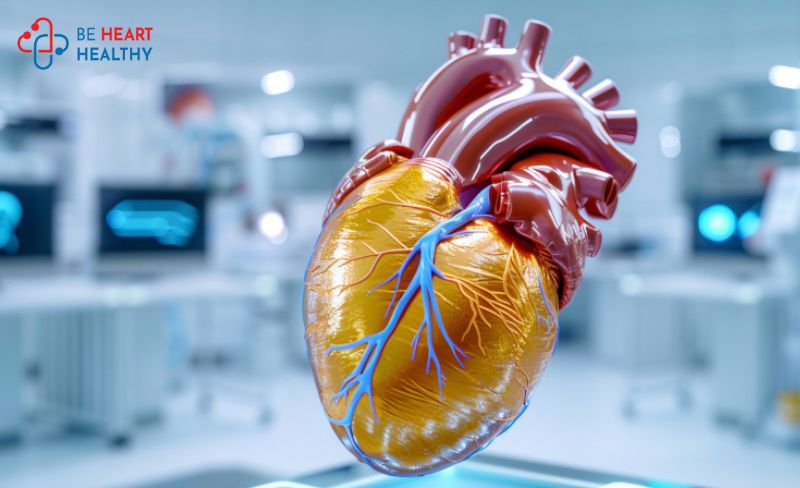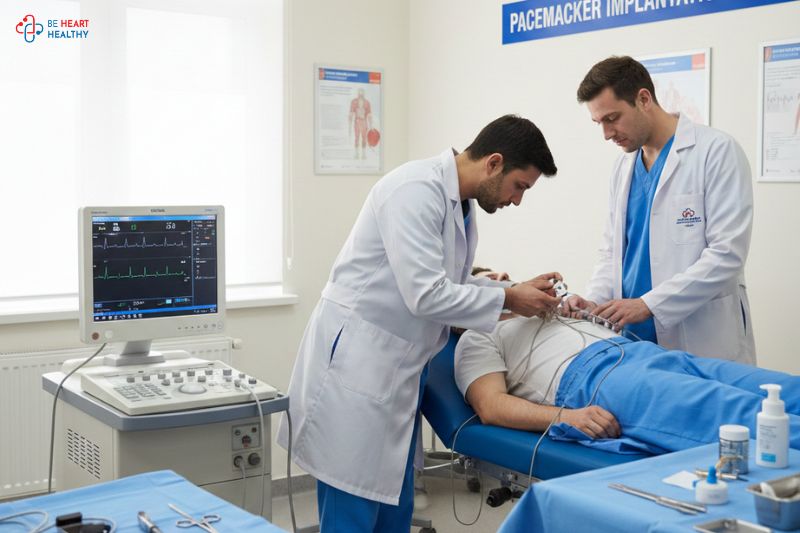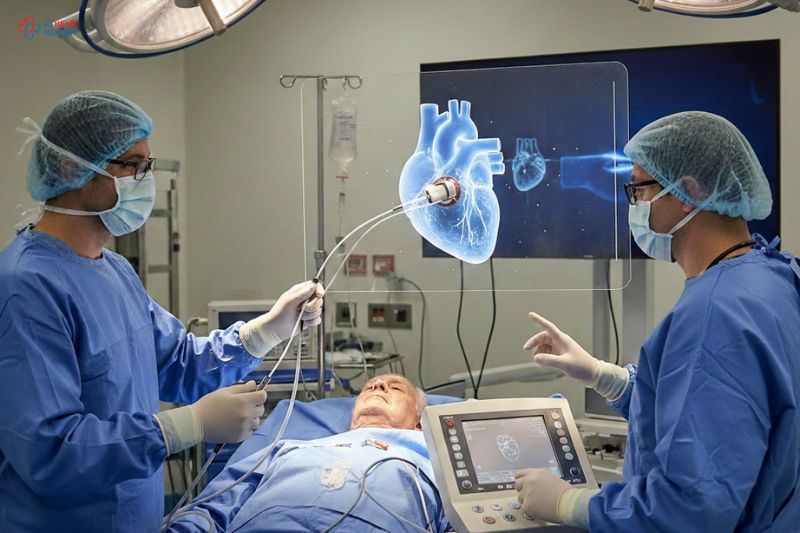India is currently on the cusp of a cardiovascular disease (CVD) epidemic. Studies show that the prevalence of heart disease and stroke has increased by 2.3-fold in about 3 decades which can be attributed to drastically changing food patterns and socio-cultural transitions. To add to this, Indians are genetically at a higher risk of developing CVD compared to their European counterparts. [1] Given all these parameters, the last thing you would want is to be too late in making the necessary transitions that can lower heart disease risk and further complications, which can impact your health and well-being. Prioritising heart health is essential. A cardiologist i.e. a heart health specialist, can provide the necessary care. Choosing the best cardiologist doctor in Mumbai ensures you receive the best care.
This blog offers actionable advice on how to find the right cardiologist, tests that a cardiologist conducts and tips on verifying credentials and scheduling consultations.
How to Choose the best Cardiologist Doctor in Mumbai?
Mumbai is a city on the move where increasing stress levels play a major role in the rising prevalence of heart-related conditions. Choosing a good cardiologist to monitor your heart health works as the first step in the right direction, especially if you have a related condition like diabetes or a family history of heart disease or obesity. The best cardiologist doctor in Mumbai will work with you and your family to diagnose and manage current heart conditions. They will use various diagnostic tools including blood tests and imaging techniques like echocardiograms or ECGs, and 2-D echo to understand the workings of your heart and cardiovascular system, thus aiding in providing comprehensive and preventive care for all your cardiology needs.
What Conditions can Cardiologists Diagnose and Treat?
Cardiology is a field that diagnoses and treats all kinds of heart and cardiovascular system-related conditions. All these comprehensive diagnostic tests can be easily carried out in the best cardiology hospital in Mumbai.
- Physical Examination: Cardiologists begin their examination by asking for a detailed medical history which includes symptoms, risk factors (like stress), present medical conditions like diabetes and hypertension and family history. It is important to let your cardiologist know if you are suffering from any other medical condition or if you have a family history of heart disease since it increases your risk of developing a heart condition in the future.
- Blood Tests: Cardiologists recommend blood tests like lipid profile and certain cardiac biomarkers to understand your risk of developing heart conditions.
- Electrocardiograms (ECG): This is a non-invasive test that monitors the electrical impulses or signals coming from your heart and provides information regarding your heart rate, rhythm and any other abnormalities.
- Echocardiography: This is also a non-invasive imaging process that allows the cardiologist to monitor the function of the heart’s muscles, valves and chambers.
- Stress Test: This is a test that evaluates the function of the heart under physical exertion of walking or running on the treadmill. It can help detect any kind of coronary artery disease.
Specific tests that are done exclusively at the best cardiology hospital in Mumbai or some clinics include
- Cardiac Catheterization: This is an invasive procedure that involves pushing a thin tube through the groin or wrist and directing it into a blood vessel in the heart. Using a dye that is pushed through the tube, the cardiologist can get detailed information about the functioning of the heart as well as any blockages or narrowing of blood vessels in the heart.
- Imaging tests: Modern imaging techniques like computed tomography (CT) scans, magnetic resonance imaging (MRI) or positron emission tomography (PET) scans are widely used to get detailed images of the heart and make a correct diagnosis.
The best cardiologist in Mumbai can correctly interpret diagnostic tests which is essential for ensuring accurate diagnoses and effective treatment plans.
The following heart-related conditions can be treated and managed [2] by the best cardiologist in Mumbai:
- Hypertension or high blood pressure
- Chest pain, also called angina
- Coronary artery disease
- Congestive heart failure
- Arrhythmia
- Valvular heart disease
- Issues with the pericardium or the lining of the heart
- Problems with the arteries of the heart
- Myocardial infarction, also called heart attack
- Diseases of the heart muscle, called cardiomyopathy
When would be the Right Time to Visit a Cardiologist?
Your family physician may refer you to a cardiologist if you have symptoms such as chest pain, dizziness, breathlessness, shortness of breath, palpitations, etc.
You may also be referred to a cardiologist in certain other circumstances like –
- A relevant and strong family history of heart disease or diabetes
- Are currently under treatment for hypertension or diabetes
- Elevated blood lipid levels
- Altered ECG
- If you are experiencing extreme stress levels at home or the workplace
You may not need a referral to go and see a cardiologist. If you feel that you are at a high risk of developing a heart condition or are undergoing stress-related anxiety, going to a cardiologist will help relieve your doubts about developing a heart condition.
The best cardiologist in Mumbai will not only help you with a diagnosis of any underlying heart condition but will also prescribe preventative strategies to help reduce the stress on the heart. These would include a healthy diet plan, exercise strategy and advice on lifestyle improvement techniques.
Your Guide to Choosing the best Cardiologist in Mumbai
Most people wonder, “How do I choose a good cardiologist?” Here are some guiding points to help you make the right choice.
- Look for Credentials: Most cardiologists will have a 5-year MBBS degree that is recognised by the Indian Medical Council, followed by a postgraduate course in cardiology which could be either a Doctor of Medicine (DM) or a master’s degree in medicine (MD) specialising in cardiology. Cardiologists who are qualified to perform surgical procedures have to complete an MS (Masters in Surgery) degree in addition.
- Assess Experience: As with any other field, doctors also improve their skills of diagnosis and treatment through experience.
- Look up Referrals and Testimonials: Most people prefer to go to cardiologists who have been referred by another doctor or a patient who has been previously treated. Word of mouth goes a long way in making a choice. Online patient testimonials can give you a fairly good idea to make the correct decision.
- Look for the 3 C’s: Compassion, Confidence and Credibility are the 3 C’s of a good cardiologist.
- A compassionate cardiologist will show empathy and understanding towards your concerns, making you feel comfortable and supported throughout the treatment process.
- Confidence in a cardiologist’s abilities and experience can instil trust and reassurance, leading to better patient outcomes.
- Credibility demonstrated through certifications, affiliations, and patient reviews, is essential for choosing a trustworthy cardiologist.
Scheduling an Appointment with the best Cardiology Hospital in Mumbai
Many clinics and hospitals in Mumbai offer convenient online booking options through platforms like Practo or Lybrate. Additionally, traditional phone calls remain a viable method for scheduling appointments. This flexibility allows you to choose the booking method that best suits your preferences and availability.
Conclusion
Choosing the best cardiologist in Mumbai is crucial for ensuring optimal heart health. By considering factors such as credentials, experience, patient reviews, and communication skills, you can find a qualified and compassionate physician who will provide personalised care and support. Remember, early detection and prevention are key to maintaining a healthy heart. Don’t hesitate to seek professional advice if you have any concerns or symptoms related to heart health.



